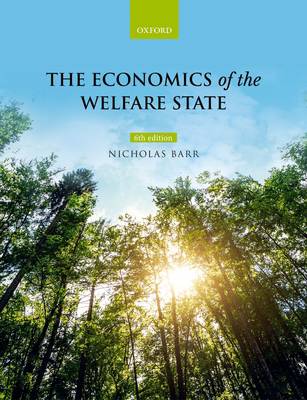
- Retrait gratuit dans votre magasin Club
- 7.000.000 titres dans notre catalogue
- Payer en toute sécurité
- Toujours un magasin près de chez vous
- Retrait gratuit dans votre magasin Club
- 7.000.0000 titres dans notre catalogue
- Payer en toute sécurité
- Toujours un magasin près de chez vous
Description
The sixth edition of this successful textbook discusses elements of the welfare system, including cash benefits, the health service and education. The text argues that the welfare state does not exist just to help the underprivileged, but also offers efficiencies in areas where the private markets would be inefficient or would not exist at all. Suitable for both economics students and students on related disciplines, this book places the content within a theoretical framework, and uses learning features to engage students with the discussion. Each chapter is concluded with a summary of the key points and an appendix, which provides a non-technical summary for students with no previous exposure to economics. Worked examples from around the world facilitate the comparison of global welfare issues, while diagrams allow readers to visualize concepts. The author ends each chapter with 'questions for further discussion' which could be prepared to structure seminars or to independently test understanding, while an annotated list of further reading suggestions guides additional research. This book is accompanied by the following online resources.
For students:
- Web links
- Further reading For lecturers:
- PowerPoint slides
For students:
- Web links
- Further reading For lecturers:
- PowerPoint slides
Spécifications
Parties prenantes
- Auteur(s) :
- Editeur:
Contenu
- Nombre de pages :
- 424
- Langue:
- Anglais
Caractéristiques
- EAN:
- 9780198748588
- Date de parution :
- 24-06-20
- Format:
- Livre broché
- Format numérique:
- Trade paperback (VS)
- Dimensions :
- 188 mm x 244 mm
- Poids :
- 703 g

Les avis
Nous publions uniquement les avis qui respectent les conditions requises. Consultez nos conditions pour les avis.






